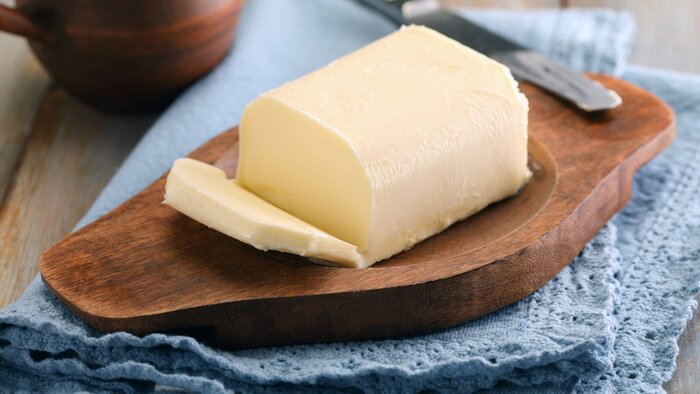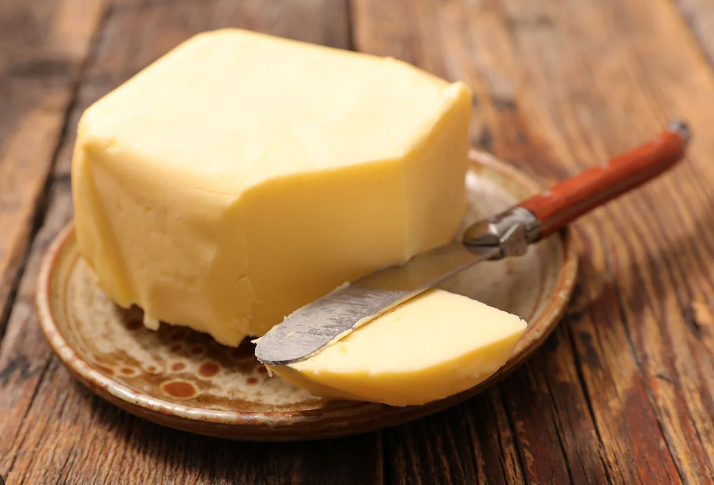Butter Nutrition: Understanding Calories, Macros, and Nutritional Value
Butter is a widely used ingredient in cooking and baking, adding richness and flavor to many dishes. However, it has also been the subject of much debate regarding its impact on health and nutrition. In this article, we will explore the nutrition facts of butter, including its calorie count, macros, and nutritional value, to help you make informed decisions about your diet.
Calories In Butter

One of the most important things to consider when it comes to butter nutrition is its calorie count. Butter is a high-calorie food, with one tablespoon of butter containing approximately 100 calories. This means that even small amounts of butter can add up quickly, so it's important to be mindful of your portion sizes if you're watching your calorie intake.
Butter Macros
In addition to calories, it's also important to consider the macronutrient profile of butter. Butter is primarily composed of fat, with a small amount of protein and carbohydrates. Specifically, one tablespoon of butter contains about 11 grams of fat, 0.1 grams of protein, and 0.01 grams of carbohydrates. These macros can vary slightly depending on the type of butter you're using, but overall, butter is a high-fat food.
Fat Grams In Butter
As we just mentioned, butter is primarily composed of fat, which makes it an excellent source of this macronutrient. However, it's important to be mindful of your fat intake, as consuming too much fat can lead to weight gain and other health issues. One tablespoon of butter contains approximately 11 grams of fat, which is about 17% of the recommended daily value for an adult on a 2,000 calorie diet.
Butter Nutritional Value

Despite being a high-fat food, butter does contain some important nutrients that can benefit your health. For example, butter is a good source of vitamin A, which is important for eye health, as well as vitamin D, which is necessary for strong bones and a healthy immune system. Additionally, butter contains small amounts of other vitamins and minerals, such as vitamin E, vitamin K, and selenium.
Carbs In Butter
As we mentioned earlier, butter is a low-carb food, with one tablespoon containing only about 0.01 grams of carbohydrates. This makes it a good option for those following a low-carb or ketogenic diet. However, if you're watching your carbohydrate intake for other reasons, such as managing diabetes, it's important to be mindful of the other foods you're consuming alongside butter.
Protein In Butter
While butter is primarily composed of fat, it does contain a small amount of protein. Specifically, one tablespoon of butter contains about 0.1 grams of protein. While this isn't a significant source of protein, it can still contribute to your overall daily intake.
Butter Sugar Content - Is There Sugar In Butter
One of the benefits of using butter in cooking and baking is that it doesn't contain any added sugars. However, it's important to remember that butter is still a high-calorie food, so it should be consumed in moderation if you're watching your sugar intake for other reasons.
Does Butter Have Vitamins?
As we mentioned earlier, butter does contain some important vitamins, such as vitamin A and vitamin D. However, it's important to note that butter is not a significant source of all vitamins and minerals, and it should not be relied on as a sole source of nutrition.
Is Butter Good For You
Overall, butter can be a delicious and nutritious addition to your diet when consumed in moderation. It's important to be mindful of your portion sizes and to balance your intake of high-fat foods with other nutrient-dense foods to ensure you're getting all the vitamins and minerals your body needs.
By understanding the nutrition facts of butter, you can make informed decisions about how to incorporate it into your diet. Whether you're using it as a cooking ingredient or spreading it on toast, it's important to be mindful of your overall calorie and fat intake, as well as the other nutrients you're getting from your diet.
If you're looking to reduce your calorie and fat intake, there are several ways to do so while still enjoying the rich flavour of butter. For example, you can try using smaller amounts of butter in your cooking, or substituting it with lower-calorie ingredients like olive oil or avocado.
Additionally, there are several types of butter available on the market that offer different nutritional benefits. For example, grass-fed butter is made from cows that are fed a diet primarily of grass, which can result in a higher concentration of certain nutrients like omega-3 fatty acids and vitamin K2. Ghee, which is a type of clarified butter, is also a popular alternative that has a higher smoke point and a longer shelf life than regular butter.
Ultimately, the key to incorporating butter into a healthy diet is to consume it in moderation and balance it with other nutrient-dense foods. By understanding the nutrition facts of butter and making informed decisions about your diet, you can enjoy this delicious ingredient while still maintaining a healthy lifestyle.